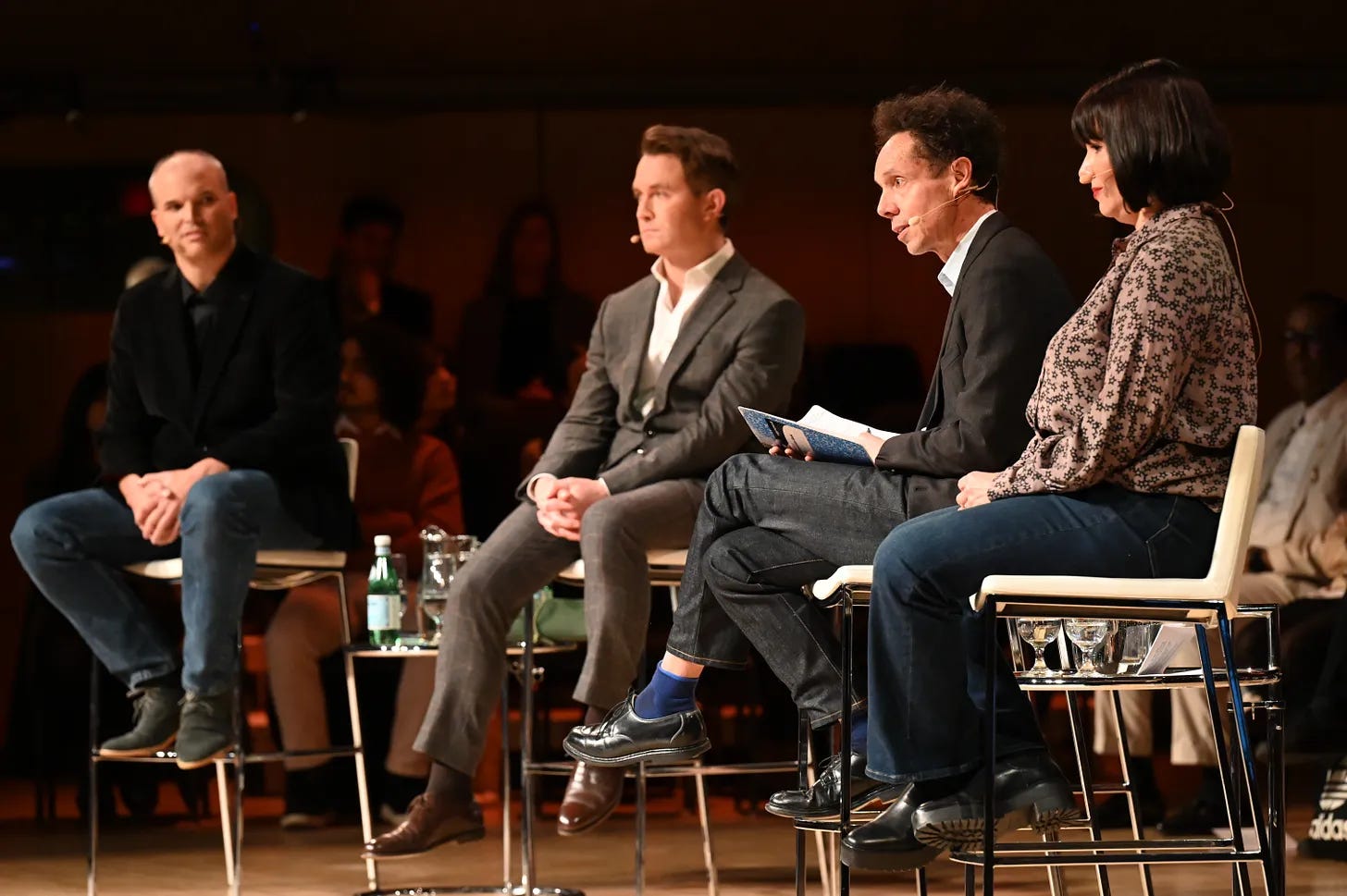Why the dichotomy between mainstream and non-mainstream media benefits no one - except those that depend on it.
Matt Taibbi just reminded the mainstream media of its defeat a year ago. The real question, however, remains: why make this distinction if the real issue is a completely different one?
Munk Debates 2022, Toronto, Canada: Taibbi, Murray, Gladwell, Goldberg on stage. (Copyright: Munk Debates)
Popular independent journalist Matt Taibbi used his platform, just a few days ago, to remind his audience of the most recent time mainstream media suffered a blow by its counterpart, which we will refer to as, for the lack of a better word, the non-mainstream media. The article written by Taibbi can be found here.
Here’s what happened, in a nutshell: Taibbi and British journalist Douglas Murray were invited to take part in the Munk debates to debate accomplished Canadian writer, and bestseller author Malcolm Gladwell, as well as New York Times columnist Michelle Goldberg on the question if mainstream media could be trusted. Of course, the way the question was formulated, it offered the participants little room for argumentation to avoid referring to mainstream media or the opposite of it, whatever that may be.1 The debate ended in an objective victory for team Taibbi/Murray, who argued passionately against the proposition, and were able to persuade the presumably liberal Toronto audience, who were asked to vote just before the debate where a majority declared to trust the mainstream media.
Let’s get the facts straight: I am by no means a natural proponent of big media outlets which are financially considerably dependent on advertisers, often large corporations which are themselves tied to politics through their own lobbying efforts. I also recognize Taibbi as a hugely important voice in the fight for free speech, vital to safeguard media’s unbiasedness which becomes increasingly important in a world dominated by special interests, polarization and disinformation.
This is exactly, however, where my argument comes into play: I do not believe in the long-term viability of the artificial dichotomy between mainstream and non-mainstream media, and, surprisingly, even Taibbi doesn’t seem to believe in it either!
Make sure to continue reading until the end to find out what I mean.
Let’s start with the core argument of the Taibbi/Murray side: The mainstream media can’t and shouldn’t be trusted because it regularly gets things wrong, and, due to its structural weaknesses, it is prone to be influenced by the agendas of outside entities, as it mainly relies on corporations and/or government for funding. They have an excellent point here and it is true that the integrity of the media needs to be protected at all costs. It ignores the basic truth, however, that we are all beholden to the hand that feeds us and that is true for the Taibbis and Murrays of this world just as it is for the mainstream media. As the influence of independent journalists grows, the less they are able to pivot on themes which are popular among their audiences as their livelihoods, tied to their income, as well as their influence on public opinion become threatened. If Taibbi really thinks he can just take any position he wants if obedience to the truth requires it, his attitude would certainly be quite naïve. Any article he’d publish, praising the reporting of the New York Times or the Washington Post, would certainly be met with disdain by large parts of his followership as they mostly agree with the notion that the traditional media cannot be trusted. Taibbi, of course, is aware of that very well.
That is, however, not even my strongest point.
Earlier I wrote that not even Taibbi himself believes that the real problem lies in the bipolar system of having a mainstream versus a non-mainstream media. What do I mean by that? Well, in his opening remarks he painted a picture of what constitutes good journalism for him, namely to report on things based on facts, to make efforts to reach out to the people they report on, and to avoid catering to one specific audience only. “News media shouldn’t have a side. It should focus on getting things right which (…) is a hard enough job. Until we get back to the basics, we don’t deserve to be trusted. And we won’t be”. Powerful words which made me wonder why the debate was centred around the lack of trust in the mainstream media and not around the lack of trustworthy journalism in general instead. In his introduction Taibbi revealed what he really believes to be at the heart of the issue: bad journalism and a lack of journalistic ethos. There surely are excellent, fact-oriented journalists working for the New York Times just as there are terrible, biased writers on Substack. Making this a debate about the question why the quality of journalistic output appears to have decreased substantially, as well as touching on important issues such as the disappearance of small, local newspapers, would have been the better, and honestly more sane, approach by a mile.
Taibbi and other voices taking aim at the so-called mainstream media have to be careful that they don’t contribute to the amplification of the bifurcated system they are so eager to criticize. I sincerely hope they recognize and care about these risks.
Let’s remember, it is not possible to define a thing by describing its opposite or by stating what it is not.



